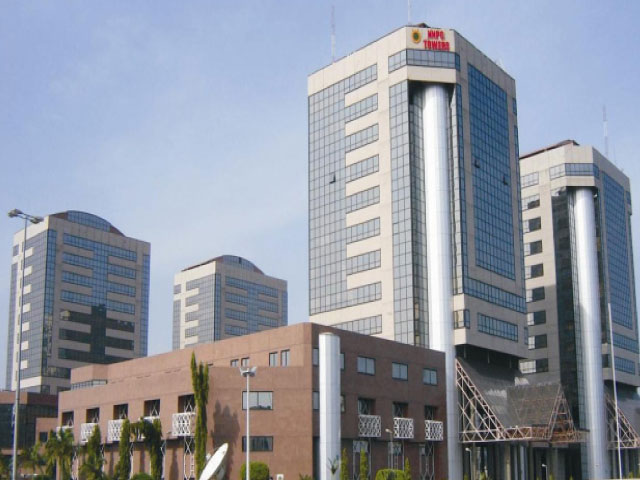ABUJA, Nigeria — The Nigerian National Petroleum Company Limited (NNPCL) is indebted to the federation to the tune of ₦6.57 trillion as of May 2025, according to a report submitted by the Federal Accounts Allocation Committee (FAAC) during its monthly meeting.
The report, titled “NNPC Ltd Payables to NUPRC, FIRS & Federation as at May 2025 FAAC”, outlines outstanding financial obligations spanning royalties, taxes, and dividends, which the state-owned oil firm has yet to remit over a nearly two-year period.
Of the total liabilities, ₦3.89 trillion is owed in unpaid royalties to the Nigerian Upstream Petroleum Regulatory Commission (NUPRC), while ₦2.52 trillion represents outstanding tax obligations due to the Federal Inland Revenue Service (FIRS).
A further ₦162.33 billion in unremitted dividends also remains pending.
The FAAC report highlights persistent volatility in NNPCL’s monthly remittance patterns.
In 2023, the company owed a cumulative ₦2.03 trillion — ₦1.19 trillion in royalties and ₦843.28 billion in taxes — which FAAC said would be addressed by the Office of the Accountant General of the Federation.
From January 2024 to April 2025, however, an additional ₦4.537 trillion in payables accrued.
Monthly data showed that unpaid royalties and taxes remained consistently high, peaking in March 2024 at ₦532.07 billion before dipping to ₦204.74 billion in April 2025.
Despite the downward trend in some months, figures never fell below ₦100 billion throughout the period.
The highest single-month shortfall — over ₦770 billion — was recorded in August 2023, with similar spikes noted in November and December of 2024.
A recent World Bank report further revealed that NNPCL only remitted half of its earnings in 2024, leaving an estimated ₦500 billion unaccounted for.
The report stated that, although the petrol subsidy was removed in October 2024, NNPCL delayed transferring revenue gains until January 2025.
“Since then, it has been remitting only 50 per cent of these gains, using the rest to offset past arrears,” the World Bank noted.
It said the company remitted ₦600 billion in 2024, down from ₦1.1 trillion in 2023.
While gross revenues from Nigeria’s major revenue-generating agencies rose to ₦29.5 trillion in 2024 from ₦16.5 trillion in 2023, NNPCL’s remittance performance stood out as the lowest, despite being a central player in the oil and gas sector.
The FAAC document noted that royalty obligations in the first four months of 2025 remained above ₦130 billion monthly, while tax arrears exceeded ₦64 billion monthly, with no significant improvement in clearance rates.
It also attributed the delay in remittances partly to fluctuating foreign exchange rates, as remittance conversions were based on Central Bank of Nigeria (CBN)-approved rates for the month of crude lifting.
A portion of the outstanding payments was said to be under review by a Presidential-approved Stakeholder Alignment Committee.
“NNPC Limited remitted the 50 per cent JV Royalty & Taxes in February, March & April and May 2025 FAAC,” the report noted.
In a strongly worded statement issued on Friday, June 27, 2025, NNPCL responded to mounting public scrutiny and legislative inquiries by alleging a “coordinated sabotage campaign” targeting its leadership and reform agenda.
“The Nigerian National Petroleum Company Limited has uncovered an emerging coordinated sabotage campaign being waged by a syndicate of known and faceless actors,” the statement said.
The company accused internal and external actors of disseminating “scandalous and fabricated reports” to derail its anti-corruption transformation and discredit ongoing operational reforms aligned with President Bola Tinubu’s energy sector mandate.
The statement warned of a rise in “defamatory content” aimed at NNPCL’s leadership and reiterated that the company “remains undeterred.”
The NNPCL’s public response coincides with a Senate Committee on Public Accounts probe into alleged irregularities in the company’s audited financial reports from 2017 to 2023.
The committee has flagged over ₦210 trillion in discrepancies and issued a 10-day ultimatum for the company’s top executives to appear before the panel by July 10.
Key issues under scrutiny include ₦103 trillion in undocumented expenses and a further ₦103 trillion in receivables.
NNPCL officials have so far failed to appear before the committee, prompting the Senate to consider invoking constitutional sanctions if the deadline is ignored.







